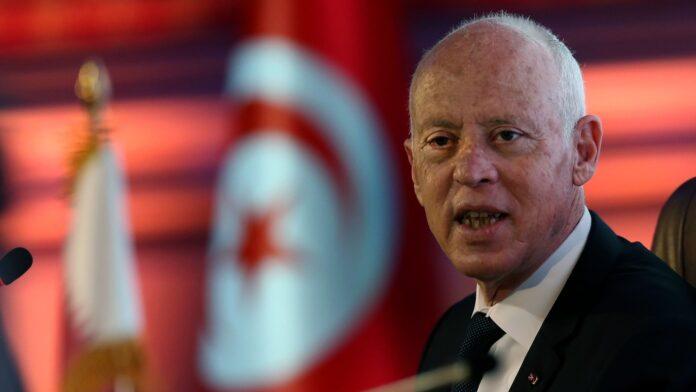After President Kais Saied promised to abolish a major judicial watchdog, more than 200 judges and attorneys in black robes protested outside the main court in Tunisia’s capital on Thursday.
Judges in the North African country, which was the home of the 2011 Arab upheavals, have been on strike since Wednesday in protest of Saied’s weekend decision to abolish the Supreme Judicial Council (CSM), months after a power grab in July.
Police stood by as protestors screamed “return the CSM” and “the people demand an independent judiciary” during a march in downtown Tunis on Thursday.
Some held posters that said Saied’s action was a “violation of rights and freedoms” and that “democracy is impossible without an independent judiciary.”
Saied has long accused the CSM of obstructing politically sensitive investigations and being swayed by his arch-rival, the Islamist-inspired Ennahdha party.
He insisted he had no intention of meddling with the judiciary when he announced the dissolution, but rights organizations and global powers have criticized it as a step backwards in a country viewed as the only — albeit flawed — democracy to emerge from the Arab Spring protests.
Saied, who handed himself legislative powers late last year, said on Thursday that he expected to sign orders disbanding the CSM in the coming days.
“Let me be clear: by decree, the council will be abolished and replaced by another,” he stated.
“Justice is a profession, not a government department.” “The law holds all judges accountable.”
Some of the attorneys who attended the demonstration had previously openly criticized Saied’s practices.
On Wednesday, a coalition of 45 civil society organizations published a declaration denouncing “any executive power involvement in the judiciary’s work.”
They said that, despite its “flaws,” the CSM was the only organization that could ensure the independence of the court.
Many Tunisians applauded Saied’s decision on July 25 to remove the government and suspend parliament, since they were weary of being ruled by corrupt and self-serving political parties.
His detractors, on the other hand, accuse him of leading Tunisia back to dictatorship.
